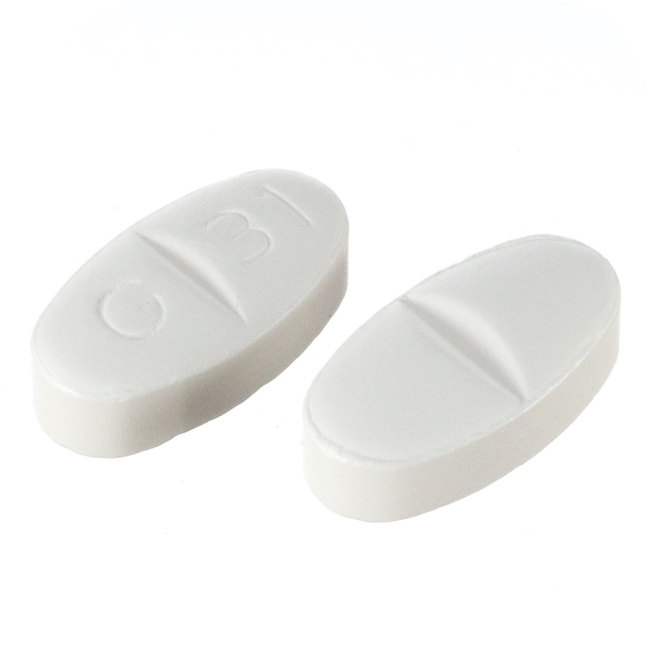Gabapentin (brand name: Neurontin) is a generic prescription drug that is FDA-approved as an add-on treatment with other medications for partial seizures in those with epilepsy. It can also be used to treat nerve pain from postherpetic neuralgia (a complication of shingles). Gabapentin is frequently prescribed off-label for many other conditions, such as diabetic peripheral neuropathy, fibromyalgia, and alcohol dependence.
Gabapentin is typically prescribed as a generic, but the drug is also available under the brand names Neurontin and Gralise. Some patients may be prescribed drugs very similar to gabapentin—such as Horizant (gabapentin enacarbil) or Lyrica (pregabalin)—instead of gabapentin.
Gabapentin is taken as a tablet, capsule, or oral liquid. Dosing will depend on the condition being treated, age of the person being treated, and kidney function. The usual dose for epilepsy starts at 300 mg on the first day. The dose can then be increased until an effective dose is reached, which is usually 300 to 600mg taken three times per day.
Forms and Strengths

Generic: Gabapentin
-
- Form: oral capsule
- Strengths: 100 mg, 300 mg, 400 mg
Brand: Neurontin
-
- Form: oral capsule
- Strengths: 100 mg, 300 mg, 400 mg
Dosage for postherpetic neuralgia
Adult dosage (ages 18–64 years)
- Typical starting dosage: Day 1, 300 mg; day 2, 600 mg (300 mg two times per day, spaced evenly throughout the day); day 3, 900 mg (300 mg, three times per day, spaced evenly throughout the day). Your doctor may further increase your dosage after day 3.
- Maximum dosage: 1,800 mg per day (600 mg, three times per day, spaced evenly throughout the day)
Child dosage (ages 0–17 years)
Dosage for people younger than 18 years has not been established.
Senior dosage (ages 65 years and older)
Your kidney function may decrease with age. Your body may get rid of this drug more slowly. Your doctor may start you on a lower dose so that too much of this drug does not build up in your body. Too much of the drug in your body can be dangerous. Your doctor may change your dose based on how well your kidneys are working.
This product may contain inactive ingredients, which can cause allergic reactions or other problems. Talk to your pharmacist for more details.
Before using Gabapentin (buy neurontin® online), tell your doctor or pharmacist your medical history, especially of: kidney disease, mental/mood problems (such as depression, thoughts of suicide), use/abuse of drugs/alcohol.
This drug may make you dizzy or drowsy or cause blurred vision. Do not drive, use machinery, or do any activity that requires alertness or clear vision until you are sure you can perform such activities safely. Limit alcoholic beverages.
Before having surgery, tell your doctor or dentist about all the products you use (including prescription drugs, nonprescription drugs, and herbal products).
Older adults may be more sensitive to the side effects of this drug, especially swelling of the hands/ankles/feet, dizziness, or loss of coordination. Dizziness and loss of coordination can increase the risk of falling.
Children may be more sensitive to the side effects of this drug, especially mental/mood/behavior changes (such as hostility, problems concentrating, restlessness).
During pregnancy, this medication should be used only when clearly needed. Discuss the risks and benefits with your doctor.
Gabapentin passes into breast milk. Consult your doctor before breast-feeding.
Gabapentin OVERDOSE
A lethal dose of gabapentin was not identified in mice and rats receiving single oral doses as high as 8000 mg/kg. Signs of acute toxicity in animals included ataxia, labored breathing, ptosis, sedation, hypoactivity, or excitation.
Acute oral overdoses of NEURONTIN up to 49 grams have been reported. In these cases, double vision, slurred speech, drowsiness, lethargy, and diarrhea were observed. All patients recovered with supportive care. Coma, resolving with dialysis, has been reported in patients with chronic renal failure who were treated with NEURONTIN.
Gabapentin can be removed by hemodialysis. Although hemodialysis has not been performed in the few overdose cases reported, it may be indicated by the patient’s clinical state or in patients with significant renal impairment.
If overexposure occurs, call your poison control center at 1-800-222-1222.
Gabapentin may interact with other medications
Gabapentin oral capsule can interact with several other medications. Different interactions can cause different effects. For instance, some can interfere with how well a drug works, while others can cause increased side effects.
Below is a list of medications that can interact with gabapentin. This list does not contain all drugs that may interact with gabapentin.
Before taking gabapentin, be sure to tell your doctor and pharmacist about all prescription, over-the-counter, and other drugs you take. Also tell them about any vitamins, herbs, and supplements you use. Sharing this information can help you avoid potential interactions.
If you have questions about drug interactions that may affect you, ask your doctor or pharmacist.
Pain drugs
When used with gabapentin, certain pain drugs can increase its side effects, such as tiredness. Examples of these drugs include:
- morphine
Stomach acid drugs
When used with gabapentin, certain drugs used to treat stomach acid problems can reduce the amount of gabapentin in your body. This can make it less effective. Taking gabapentin 2 hours after taking these drugs can help prevent this problem. Examples of these drugs include:
- aluminum hydroxide
- magnesium hydroxide
Important considerations for taking gabapentin
Keep these considerations in mind if your doctor prescribes gabapentin oral capsule for you.
General
Gabapentin oral capsules can be taken with or without food. Taking them with food can help to reduce upset stomach.
Storage
- Store gabapentin at room temperature between 68°F and 77°F (20°C and 25°C).
- Don’t store this medication in moist or damp areas, such as bathrooms.
Refills
A prescription for this medication is refillable. You should not need a new prescription for this medication to be refilled. Your doctor will write the number of refills authorized on your prescription.
Travel
When traveling with your medication:
- Always carry your medication with you, such as in your carry-on bag.
- Don’t worry about airport X-ray machines. They can’t hurt your medication.
- You may need to show airport staff the pharmacy label for your medication. Be sure to carry with you the prescription-labeled box that your medication came in.
- Do not put this medication in your car’s glove compartment or leave it in the car. Be sure to avoid doing this when the weather is very hot or very cold.
Clinical monitoring
Your doctor will monitor your kidney function.
Insurance
Many insurance companies require a prior authorization for gabapentin. This means your doctor will need to get approval from your insurance company before your insurance company will pay for the prescription.
Are there any alternatives?
There are other drugs available to treat your condition. Some may be better suited for you than others. Talk to your doctor about other drug options that may work for you.
Disclaimer: Healthline has made every effort to make certain that all information is factually correct, comprehensive, and up-to-date. However, this article should not be used as a substitute for the knowledge and expertise of a licensed healthcare professional. You should always consult your doctor or other healthcare professional before taking any medication. The drug information contained herein is subject to change and is not intended to cover all possible uses, directions, precautions, warnings, drug interactions, allergic reactions, or adverse effects. The absence of warnings or other information for a given drug does not indicate that the drug or drug combination is safe, effective, or appropriate for all patients or all specific uses.
cool! it is good article for Gabapentin